Hello everyone,
A few months ago, I had the pleasure of interviewing David Senra, host of the Founders podcast. David is incredibly high energy and authentic about what he does. You think Mohnish Pabrai takes the idea of cloning seriously? Here’s David:
I can live the rest of my entire life never having one original idea. As long as I’ve mastered the handful of ideas that I see as recurring themes in the history of entrepreneurship, I will live a fantastic life. Because it's not only knowing this stuff, but also actually applying them.
To paraphrase Bruce Lee, fear not the man who has read 10,000 books once but rather the man who has re-read the best ones over and over. Or, in David’s case, the man who does both.
David sticks to Munger’s maxim of taking a simple idea and taking it seriously:
The greatest entrepreneurs had one idea. They built everything around that one idea. There might be things that spawn off of that idea later on. There are other businesses that can grow out of that, other business lines, other products. But fundamentally, they start with an idea.
In David’s case it’s podcasting and a vein of high quality information that he mines and converts into an attractive product. Actually, it’s a combination of two big ideas: a big wave to surf (podcasting) and a big insight about David himself (love of reading and learning, ability to go deep in one area without burning out).
I hope you enjoy the conversation and pick up some valuable ideas from his entrepreneurial heroes (and villains…).
Reading a book is a movie for the mind. It's impossible to read a life story of an interesting person and not be involved emotionally. You're with them in their ups and downs. It's a predictable human reaction that you put yourself in their shoes.
You can listen to this conversation on Spotify, Apple, anchor (and via RSS) or find a full transcript at Compound.
If you’re looking for an all-in-one solution to manage your personal finances, Compound can help (disclosures).
A few things I learned from David:
Building a company can require an illogical amount of persistence.
James Dyson "has 14 years of struggle. He builds 5,127 prototypes. He mortgaged his house. Some days, after doing all these experiments, he's climbing into bed at night covered in dust, crying at how painful what he's trying to do. It's 14 years and 5,127 prototypes before he has a vacuum of his own design, that he owns completely, that he could start selling to the public.
We know at year 14 he's going to have success. What about year three? What if he stopped right here? That makes perfect sense. This is why it's so difficult. It is the logical decision. He should have stopped there, but he didn't.
The founder is the guardian of the company's soul.
I covered the biography of this guy named Sidney Harman. If you ever get into a luxury car, you'll see speakers that say Harman Kardon. He winds up writing this fantastic autobiography. He's 80 or 90 years old when he's writing it. It's called Mind Your Own Business. In that biography he's distilling 50 years. We haven't even been alive for 50 years. This dude had been trying to build companies, successful and unsuccessful for 50 years. Imagine what he knows.
He gave the best description of what I feel is the founder’s role. The founder is the guardian of the company's soul.
You cannot be the guardian of your company unless you love it. Edwin Land, Enzo Ferrari, and Steve Jobs, they talk about their products the way you would describe your lover. It's not the same as, I made a toaster, here's the toaster. No, they describe it like they're in love with what they've done.
No one would have known Walt Disney's name if he’d started Disney and sold it five years later.
There is this weird mind virus. I have an idea, I'm going to start up, I'm going to scale up, I'm going to sell, and then I'm going to do that over and over again. Inevitably, the question is who are the entrepreneurs you look up to? Who are your entrepreneur heroes? And they start listing off people that literally worked in the same company forever. I don't understand. Are you learning from these people or not? Because no one would have known Walt Disney's name if he started Disney and sold it five years later. No one would know Job’s name if he just got kicked out of Apple and then disappeared.
The value of compounding knowledge.
An investor understands the power of compounding. Knowledge compounds, too. Imagine going back and trying to talk to Warren Buffett about everything he knew at 35 compared to what Warren Buffett knew at 80. That's not the same person. I've read 272 biographies of entrepreneurs so far. I have a unique set of knowledge there. It's going to pale in comparison to what I will know two decades from now or three decades from now.
Studying the birth of industries.
Henry Ford had an idea. I want to build an easy, reliable car that the average person working at Ford can actually afford. That was unheard of. … Edison says something that changes Ford’s life. He says, that’s it, young man, you have it, keep at it. So, the next 5-10 years of struggle, he remembers what Edison said and it helped him. That's how Ford approached it. That's his idea. …
Billy Durant had built this vertically integrated carriage company for horses. He … went and bought a bunch of other carriage brands, and put them under one umbrella. The exact same playbook at the early days of GM. …
Henry Leland worked for Samuel Colt. The ideas that he learned in the mass production of firearms, he then shows up in Detroit and starts applying them to automobiles. When Henry Ford has a question, he goes to see Henry Leland. He is the wise old counsel with a lot more life experience.”
On founders and culture.
Whoever you are and whatever is important to you, put that into your company. Don't shy away from the eccentric part of your personality because your personality is the foundation and the beginning culture of the company.
The downside of intense focus and dedication.
The people that get really good at what they're doing don't allow themselves to think or do much of anything else.
Jony Ive, who worked very closely with Steve Jobs, was talking about one of the main lessons from Steve Jobs. He's saying, “Steve was the most remarkably focused person I have ever met in my life.” Jony works with Steve almost every day. This guy who is having lunch with him damn near every day says he is the most focused person in his life. That should tell you to do an audit of your life. Am I focused?
But also:
It's safe to assume that every single person I have read about is smarter than I am. Yet you see all these smart-driven people make mistakes. They usually over optimize their professional life to the detriment of everything else. They destroy their personal lives. They destroy their health.
Time is the best filter.
I love this idea. It’s somewhat analogous to Buffett’s insistence on a track record, on data with which to judge a person. Decisions made over time inevitably reveal character.
I don't read a story and say that person's dead, I have nothing to worry about. No, that personality type was alive then, they're alive today, they will be alive in the future. Human nature is constant. … When I come across somebody that’s completely ruthless. The minute you stop being useful, they will discard you. This is a problem that appears over and over again.
What is your solution, David? The solution I’ve come up with for my life is avoidance. I don't want to partner with you. I don't want to chase money with you. I don't want to be friends with you. … I am very selective about who I spend time with. I only have one good filter for this. I think there might only be one good filter. That is time. Time is the best filter.

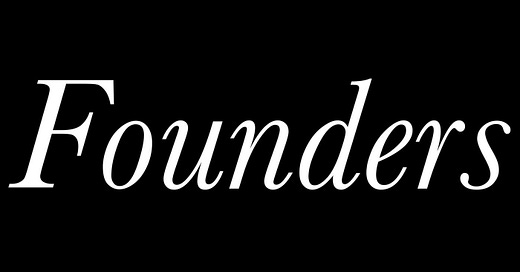





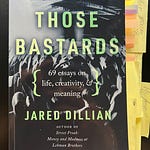
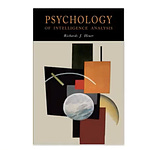
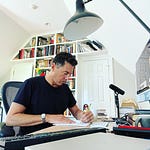
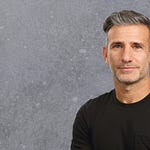

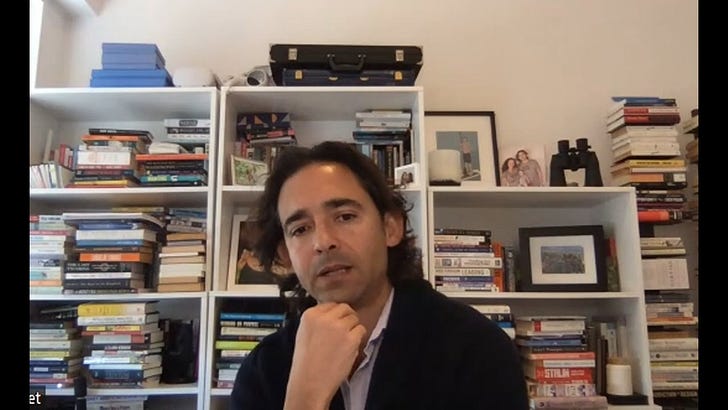
Share this post